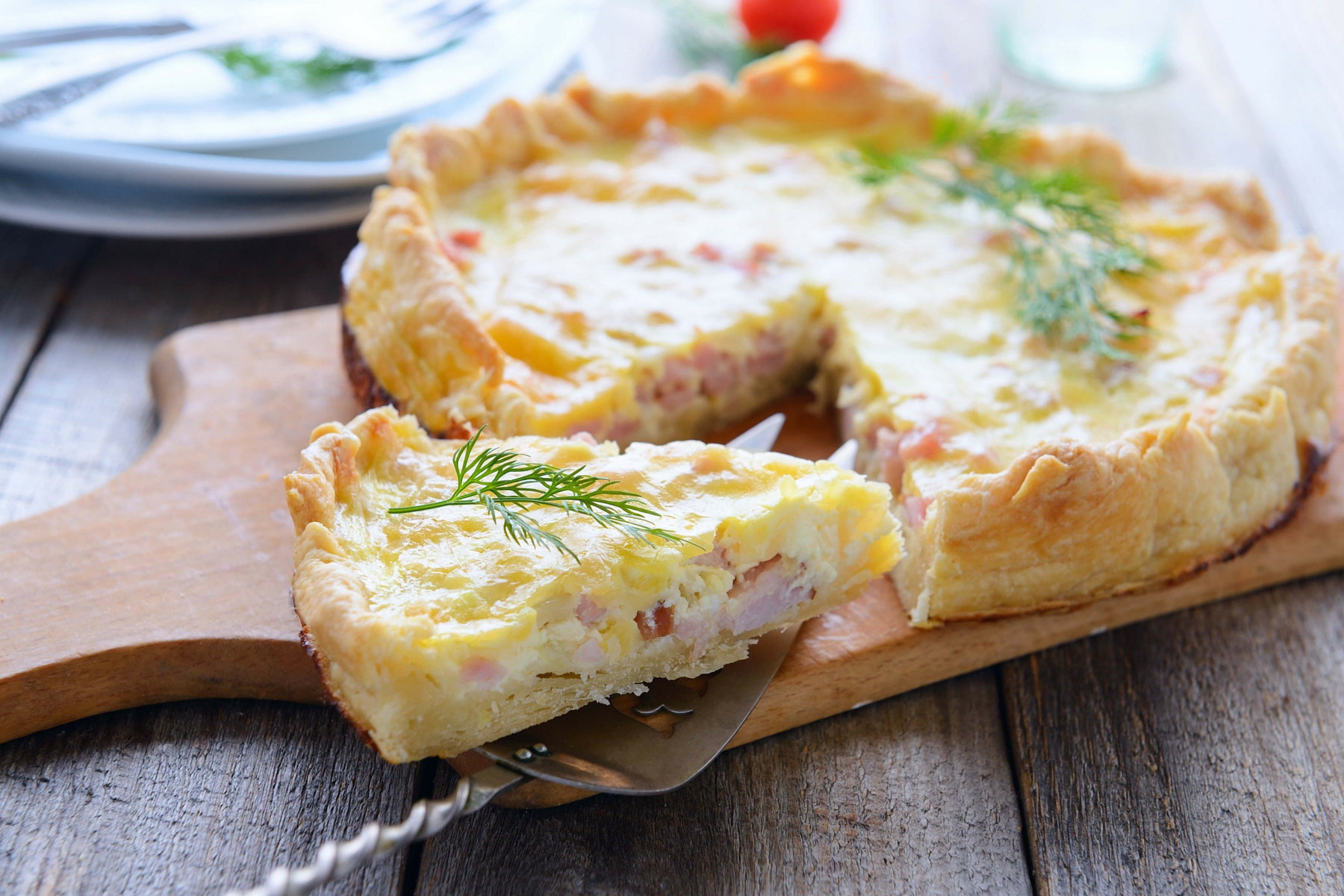

How to cook the perfect Quiche Lorraine. Recipe and wine pairing **Preparation time:** 30 minutes **Cooking time:** 10-30 minutes **Serves four people** There are few dishes as delightfully summery as a Quiche Lorraine. Simple to prepare, fantastic to eat either as a picnic centrepiece or at the table accompanied by
How to cook the perfect Quiche Lorraine. Recipe and wine pairing
**Preparation time:** 30 minutes
**Cooking time:** 10-30 minutes
**Serves four people**
There are few dishes as delightfully summery as a Quiche Lorraine. Simple to prepare, fantastic to eat either as a picnic centrepiece or at the table accompanied by a fresh salad and cold meats, it’s the ultimate meal-in-a-pastry-case.
This sumptuous tart is making a big comeback in 21st-century kitchens after a couple of decades in the wilderness, after falling out of fashion and having been unfairly associated with ‘70s dinner party standards.
The simple fact is the Quiche Lorraine is a classic of any era, and if prepared correctly by following a few simple steps and sticking to the classic ingredients, is sure to bring a smile to the faces of even the fussiest eaters.
A classic though it is, don’t be afraid to experiment. As with all pies and tarts, Quiche is wonderfully adaptable, and can be reworked to suit vegetarians, too, so feel free to replace the key ingredients with whatever takes your fancy, or whatever happens to be lurking in your fridge on the day!
What you’ll need for the pastry:
- 180 grams of plain flour
- 50 grams of Parmesan cheese (optional, but brings a great twist!)
- 100 grams of unsalted, cold butter
- 2 teaspoons of thyme leaves, without the woody stalks
- 1 teaspoon of cold water
- 1 egg yolk (dispose of the white, or use for another purpose)
What you’ll need for the filling:
- 150 grams of cubed pancetta or bacon lardons
- 250 millilitres of creme fraiche
- 150 grams of Gruyere cheese (cheddar can also be used)
- Three free range, fresh eggs
- Ground black pepper and salt to taste.
Method:
First
First of all, make sure your oven is preheated to a gentle 150 degrees centigrade.
Second
To make the pastry, sift the flour into a sturdy mixing bowl. Rub in the cold butter, the thyme leaves and the parmesan, along with the flour. Crumble it all between your fingers until it is well mixed, and resembles breadcrumbs.
Third
Add the beaten egg yolk and the teaspoon of water, and mix together to make a firm, heavy dough. Stick it in the fridge for thirty minutes - it might help to wrap in cling film - to firm up even more. This will make it a lot easier to handle and roll into pastry.
Fourth
Roll out the pastry onto a floured surface so that it will fit your tart tin. Line the tin with your thinly rolled pastry, and then ‘blind bake’ in your oven for 20 minutes, so the pastry is mostly cooked. Some people like to put dried beans or peas onto their pastry for the blind baking, in order to get an even surface. Obviously, if you do so, make sure you remove the beans before the next step. This is a quiche recipe, not one for bean pie!
Fifth
When it comes to the filling, simply put all your remaining ingredients into a mixing bowl, and mix well. Keep back 50 grams of the cheese for sprinkling over the top.
Spoon or pour the filling into the pastry case, and scatter the remaining cheese over the surface.
Last
Bake for 15 or so minutes, or until the filling is set and just starting to turn golden in colour. Serve with a lovely, crisp green salad - either hot out of the oven, or cold as a picnic item!
Wine pairing
Want to add a little wine to pair with the flavours of this dish? One of the best wine pairings for Quiche Lorraine is Alsatian Riesling.
As with most egg based dishes, quiche can be a tricky meal to pair with wine. A lot of the problems arise from the various factors within the quiche - do you pair up with the creaminess of the egg and creme fraiche, the sharpness of the gruyere, or the salty-savouriness of the ham?
For many, the most effective way of pairing food with wine is to seek out the origin of the dish, and look at what is most traditionally served alongside it. Quiche Lorraine happens to come from one of the world’s greatest wine regions - The Alsace - where French technique meets Germanic grape varietals, to produce some of the most elegant, crisp and refreshing white wines found anywhere on earth.
Alsatian wines are typically made with Riesling grapes, which is the principal grape varietal in Germany and Austria, and in many of the alpine regions of Europe. Alsatian Riesling wines are bone dry, but packed full of concentrated fresh fruit flavours, which magnificently complement the saltiness of the pork. The minerality and purity of Riesling means it’s also a classic picnic wine - perfect for drinking outside in the fresh air with salads.
And there you have it; the recipe for quiche lorraine and the perfect wine pairing.
Next up: Take our Wine Palate Quiz and match your personal tastes to your top three wine types
Do you know your wine personality? If your answer is no, take our quiz to find out which wines to pick up next and build your box!
Build my box



